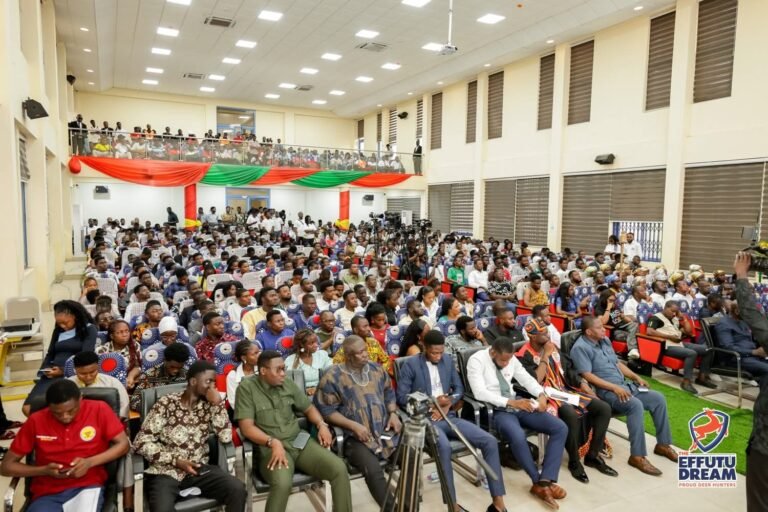
Raphael Godlove Ahenu Jnr
The Chairman of Ghana HIV and AIDS Network in-charge of the Bono East, Bono and Ahafo regions, Raphael Godlove Ahenu Jnr, has stressed the need to invest in and promote community-led health and rights interventions in achieving health for all by 2030.
Communities, he noted, must therefore be supported to collaborate with partners to promote the role of digital technologies and accurate data in achieving health for all, with an underlying focus on equity, digital security, human rights and people-centered assistance.
According to him, when people most impacted by HIV have the space and adequate resources, they can secure services that improve their quality of lives, and particularly for the most vulnerable, marginalised and excluded in society.
Strong advocacy required
They do so by holding governments and policymakers accountable, addressing injustices and inequalities, and removing barriers to HIV and SRHR services through community-led advocacy, demand creation and service delivery.
Mr. Ahenu, who is also the Bono Regional Coordinator of Ghana Coalition of NGOs in Health, told the media in Sunyani that investment in independent, community-led research and evidence-gathering improves policies, programmes, planning and investments for service delivery.
He said over the years, networks of key populations and people living with HIV had implemented community-led monitoring of HIV service delivery, the PLHIV Stigma Index, operational research, documentation of human rights violations, and advocacy capacity-building initiatives to strengthen their participation in key global and national decision-making platforms.
“It is however unfortunate that community-led data, evidence and lived experience are accorded minimal or no recognition, and the narrative around the credibility of such data and their relevance in decision-making continues to limit community leadership in evidence-based advocacy, particularly for policy and legal reforms,” he noted
Mr. Ahenu, who is the founder/CEO of Global Media Foundation, believes that community-led advocacy must task global donors to make available dedicated funding for community-led interventions, backed by appropriate procurement and risk management procedures.
Funding
He revealed that most of the current funding streams do not favour community organisations, saying innovation is needed to develop funding streams that promote equal access to funding for communities in their diversity at all levels
He noted that key populations, including people living with HIV, must be actively involved in accountability systems to monitor the progress of global and national commitments and the quality-of-service delivery for HIV and SRHR.
He pointed out that, currently, there is a shrinking civic space for communities and organisations involved with SRHR and the HIV response, adding that increasingly old-fashioned trends in many parts of the world, particularly Ghana, threaten the focus on human rights and HIV, and particularly issues of gender and the inclusion of key populations.
Mr. Ahenu said many key population-led movements and networks of people living with HIV are working in hostile or punitive environments that limit their capacity to document violations and speak up for their rights.
Consequently, they remain inadequately equipped and resourced to document and address the relationship between human rights, sexual orientation, and gender identity rights and access to SRHR and HIV services in their advocacy efforts.




